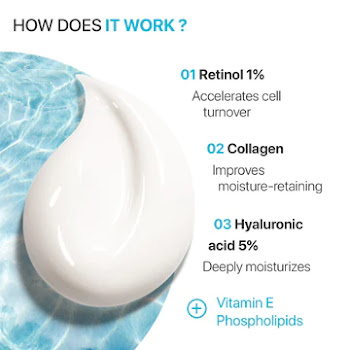FOOD SUPPLEMENT AND ITS BENIFIT ,TYPES
The food supplements are a part of the diet and their usage is regulated by FDA. It is important to know what supplements are available in your area, how to use them, and how they can benefit you.
This will help you
decide whether or not some of the products on this list might be beneficial for
you.
Below is a quick
summary of the most common types of dietary supplement foods with their
nutrient content, and the possible effects and potential benefits that each
could have on your health.
Dietary Supplements For Detoxification
1. Multivitamin/Dose Calcium Chloride tablets (Boronia)
Calcium chloride is
one of four naturally occurring calcium salts that includes hydrochloric acid;
hence this name alone would indicate a high level of calcium in the product. As
a result of its use in diets for years as a form of non-medicinal treatment,
there is extensive evidence to suggest that this type of mineral may provide
health benefits to the body. Some examples include preventing osteoporosis,
increased bone density due to increased calcium release, helping prevent
brittle bones, slowing mental decline, promoting weight loss, enhancing vision,
and maintaining healthy skin. Many people enjoy taking such supplements as
these because they contain vitamins like Calcium Carbonate, Phosphorus
Carbonate, and Vitamin C. Although these ingredients may aid in general health,
it does not mean you can take any vitamins from a daily diet without worrying
about side effects. While research cannot determine exactly how much calcium
chloride is safe for consumption, it has shown that large amounts can be
harmful to your blood pressure. If you have heart disease, or have kidney
disease, then it is recommended not to exceed 1500 mg of CaCl 2.5 or higher per
day.
Click here for best food supplement in Pakistan
2. Calcium Binder or Hydrolysed Bone Aluminate
Also known as a
compound called hydrolysed bone aluminate (HBA), this is another way to get
your dose of calcium. Another unique component in HBA is Magnesium Folate.
These compounds are found mostly in various forms in plants, including rice
bran, wheat germ, and cereal bran. Research suggests that HBA contains
properties that can improve absorption or resistance to some antibiotics. In
addition, the combination of Mg and Bi-calcium Phosphate has been shown to
reduce the risk of dementia linked to long term intake of fluoride. Despite
these claims, there is no conclusive evidence that all products marketed as HBA
have all the nutrients claimed. A study conducted by the National Institutes of
Health showed that some manufacturers sell over 80% of their HBA for less than
800 mcg of daily doses. Not only that, but half of those patients who took HBA
reported gastrointestinal symptoms that were nearly similar to those associated
with drug withdrawal symptoms. On top of everything, HBA was found to deplete
levels of folate, potassium, magnesium, phosphorus, and copper just after a
single week. Overall, it seems as though studies do not show HBA to be a
perfect supplement, even when taken in moderation.
3. Fish Oil Omega 3 Fatty Acids and Minerals
Fish oil is often
referred to as a “superfood,” so perhaps unsurprisingly, it is thought to
contribute to several health benefits. One of the main things we know so far
about fish oil is that it can affect our brain and has been implicated in improving
cognitive function. Recent studies have indicated that omega-3s found in fish,
such as EPA and docosahexaenoic acid, can be used to treat neurological
disorders. According to researchers from Duke University, fish oil supplements
containing 30% of the EPA and 10% of the DHA can decrease levels of stress
related proteins, and also improve communication between neurons. Although
these results are encouraging, it is still unclear precisely how much omega-3
will be helpful in relation to health. When looking at existing supplements,
scientists tend to focus on small amounts of either eicosapentaenoic or
docosahexaenoic acid in order to see if the results will be enough to make
someone go from mild to moderate depression. Most of these studies focus on adults
who currently suffer from mild depression. Since it is impossible to find the
exact amount of omega-3 that your body needs, it is best to talk with your
healthcare professional to find out what they recommend. Unfortunately, many
people are unable to tolerate larger doses of fish oil since it is usually more
difficult to store it properly.
4. Oily Tissues
Tissue may sound
like a basic word for something that is obviously important to our overall
health and wellbeing. To that end, many people turn to topical skin care
products such as face creams, lotions, sprays, balms, etc. Though these
products may appear appealing, they often have unwanted side effects from
chemical additives like parabens or perfumes. Other common, seemingly harmless
addictions such as alcohol, caffeine, or stimulants can cause dry skin in
excess. Even worse, there is ample evidence to suggest that excess consumption
of certain medications and toxins may make dry skin worse or contribute to the condition
altogether. When looking at commercially available options for oily tissues,
moisturizers may seem like a good choice. Once again however, there are several
factors to consider when examining your skin. First of all, your skin type,
age, hair type, health concerns, and environmental exposure will determine the
effectiveness of the product. Secondly, the amount of time you spend in front
of the sunscreen, the frequency of application, your environment (dry air vs.
humid air, etc.) as well as your individual tolerance to chemical additives can
greatly impact the final outcome.


Comments
Post a Comment